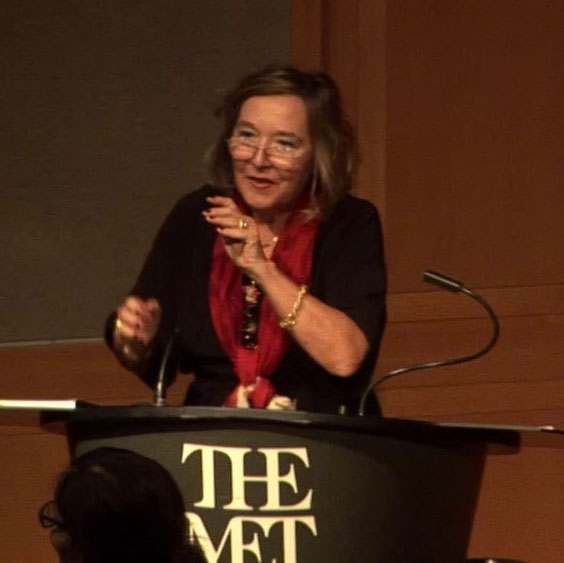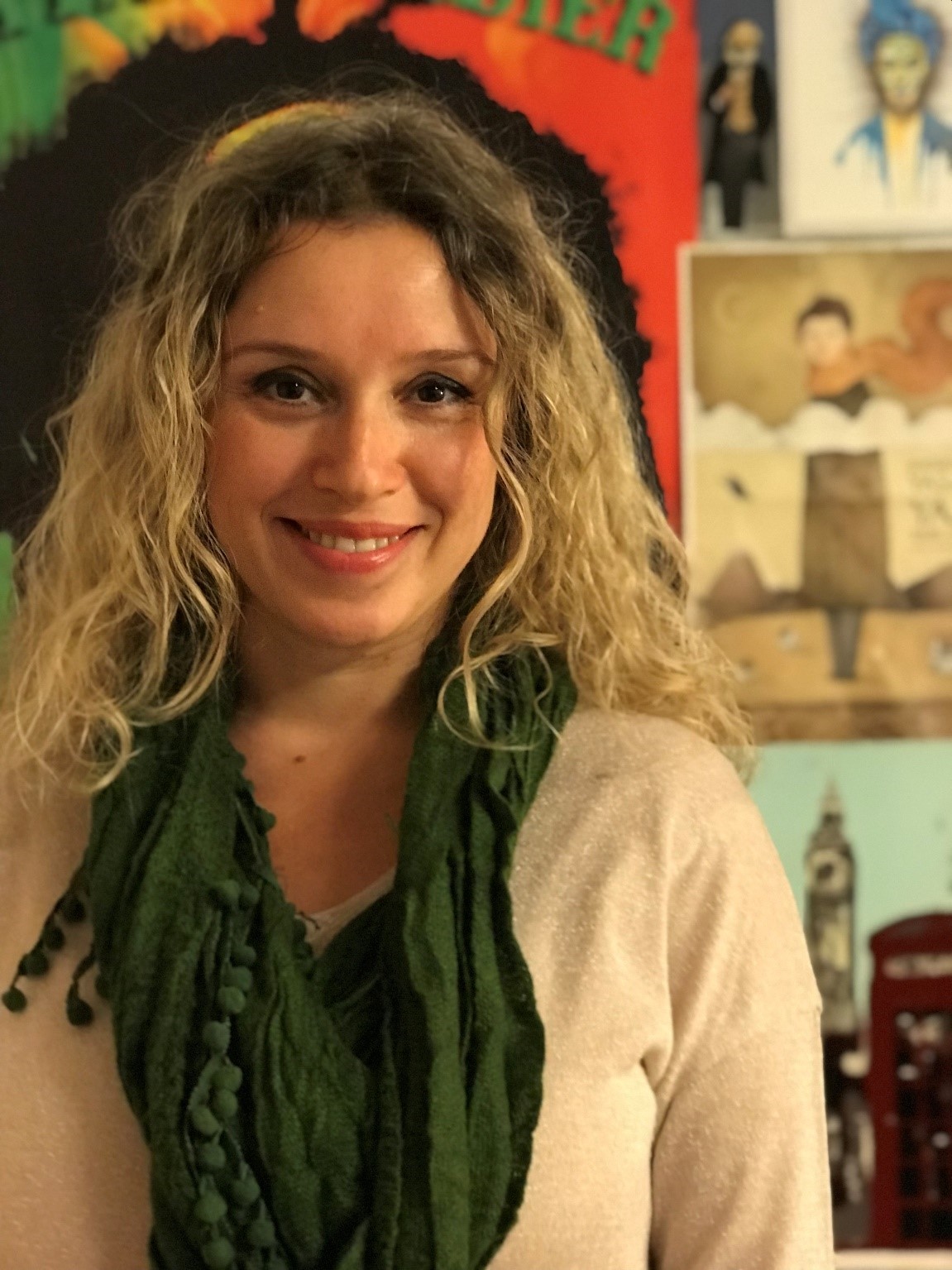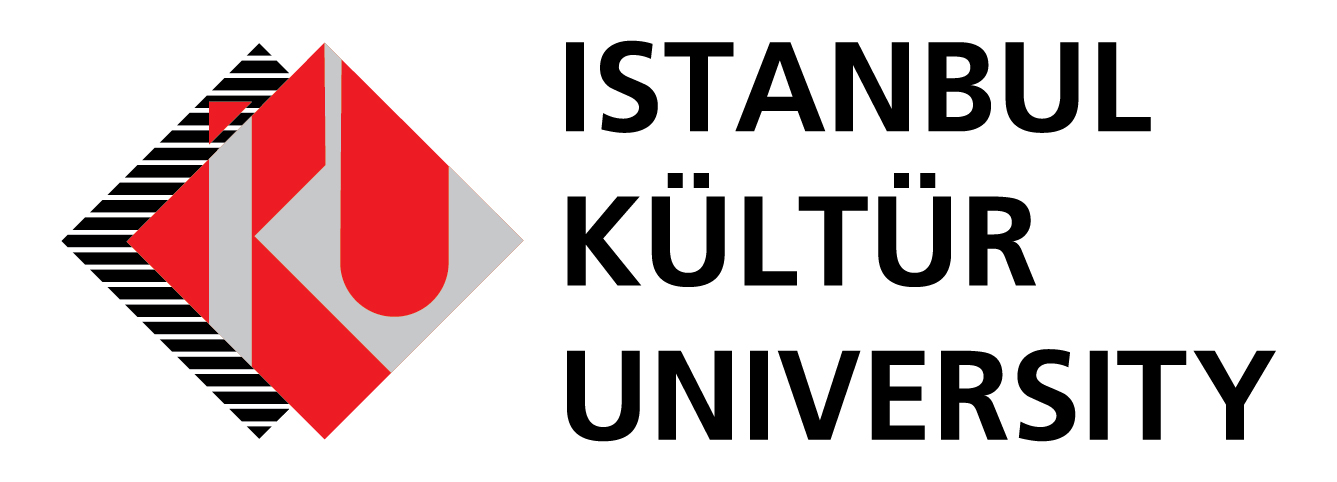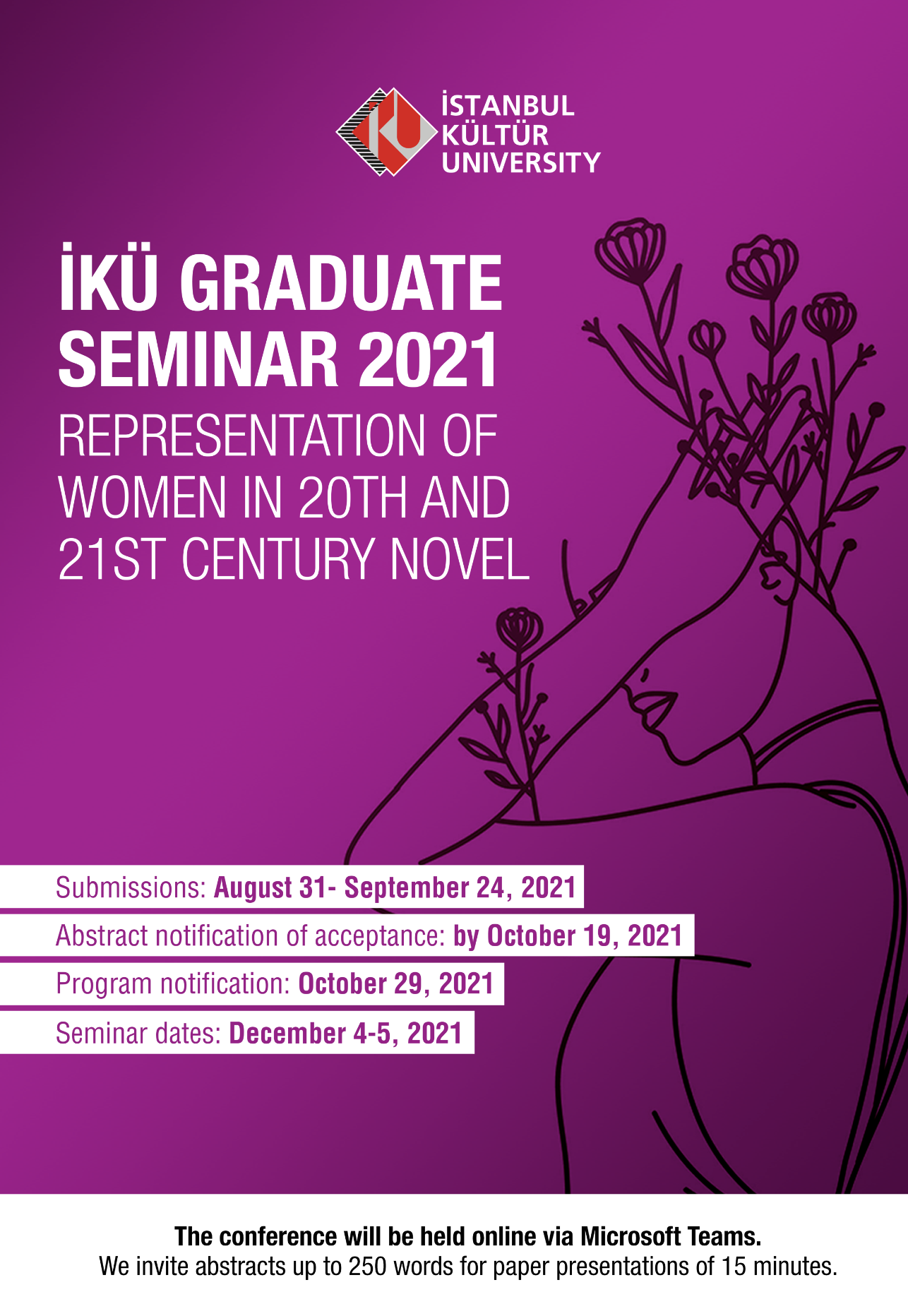Important Dates
| Submissions | August 31 - September 24 |
| Abstract notification of Acceptance | by October 25, 2021 |
| Program Notification | November 5, 2021 |
| Seminar Dates | December 4-5, 2021 |
KEYNOTE SPEAKERS
 The Art of Weaving: Bernardine Evaristo’s Girl Woman Other as narrative anti-tokenism
The Art of Weaving: Bernardine Evaristo’s Girl Woman Other as narrative anti-tokenism
Black British writer Bernardine Evaristo is famous for her representations of the African diaspora. Her Booker Prize-winning novel, Girl – Woman – Other (2019), presents a plethora of voices: mostly female, mostly black, spread over five generations and coming from all walks of life. The Oxford English Dictionary defines tokenism. as “[t]he practice or policy of making merely a token effort or granting only minimal concessions, esp. to minority or suppressed groups”. My talk explores the problems of invisibility as well as hypervisibility created by tokenism and stereotyping and/or assigned exceptionalism. It shall draw on Audrey Lorde’s insight that “the master’s tools will never dismantle the master’s house”, on the TED-talk by Chimamanda Ngozi Adichie, in which she identifies “the danger of the single story”, and on the difference, marked by Reni Eddo Lodge, between “saying ‘We want to be include’ and ‘We want to reconstruct your exclusive system’”, in order to argue that Evaristo’s novel is engaged in what Iyiola Solanke has described as changing the “social imaginary”. Having looked into weaving as a gendered cultural practice, that has been commented on, analysed and interpreted by cultural theorists as far removed from each other on the critical spectrum as Freund and 21st century feminist critics, the sheer number and variety of Black female characters that Evaristo interlaces, demonstrates, I contend, what it can sound like if intersectionality-saturated literary representation is used as an anti-tokenist tool.
Bio
Sylvia Mieszkowski taught in Munich, Frankfurt, Amsterdam, Berlin, Paris, Zürich, Bayreuth and Salzburg before she joined Vienna University as Professor of British Literature. She is a member of the research platform SOLE (The Stress of Life) and deputy-head of a second interdisciplinary research platform called GAIN (Gender: Ambivalent In_Visibilities). Both Gender Studies and Queer Theory have been foci of her work since her time as a student, and gender as well as desire, which are to be understood as intersectional categories of analysis, continue to be important for her work. Recently, she has been doing research on neo-Victorian (bio-) fiction, dystopian fiction, and literary sound studies, and currently she is working the concept of transparency, on the one hand, and on the Refugee Tales Project, on the other. Publications include: Teasing Narratives (dissertation), Resonant. Alterities (habilitation), “Polymath Revisited: Cross-Lighting R. F. Burton between Cultural Passing and Steampunk Action” in Neo-Victorian Biofiction: Re-Imagining 19th-Century Historical Subjects, eds. M. L. Kohlke and Christian Gutleben (Brill / Rodopi, 2020): 265-293 and More Than Meets the Ear: Sound & Short Fiction, ed. with Manon Burz-Labrande and Harald Freidl, double issue of Short Fiction in Theory & Practice 11.1&2 (2021). Another double volume, co-edited with Birgit Spengler, Lea Espinoza Garrido and Julia Wewior on Migrant States of Exception, is in preparation for the interdisciplinary journal Parallax.
 Representation of Women Scientists in Contemporary SF
Representation of Women Scientists in Contemporary SF
Why do female scientists/academics still struggle to find a room, a lab, a place, and an identity of their own? The portrayal of women suffering from mental illness has been a captivating subject in English literature; being portrayed as either angel in the house or witch-monster-madwoman in the attic as in the Victorian fiction (Gilbert and Gubar 79), and insane fragmented paranoic/schizophrenic women with split roles in modern times. From the 20th century to the present, women are assigned multiple contemporary female roles as academically independent professional women with the traditional roles of wife and mother at the same time. This talk is a feminist criticism of the image and representation of women scientists in SF who have been depicted as a side rather than main characters. I argue how gender becomes a visible barrier to advancement in almost every sphere of life but mostly in science as a result of gender stereotypes and gendered professional culture. I explore the threshold of madness the women scientists are driven to as a response to the strain of ongoing patriarchal violence that devalues women’s place in science as the ‘second sex,’ and the consequences of the psychological dilemma balancing the multiple roles in their professional career and personal life. I also aim to explore what it means to be a female and a scientist representing the breakdown of traditional ways of being in the patriarchal world.
Keywords: gender inequality in science, the image of women scientists in SF, gender stereotyping, gothic SF, feminist science fiction
Bio
Sümeyra Buran is an Associate Professor of English at Istanbul Medeniyet University (IMU) and a Visiting Associate Professor in the Department of Gender and Sexuality Studies at the University of California Riverside (UCR). Since she was awarded a research grant by the Scientific and Technological Research Council of Turkey (TUBITAK) in 2018, she has been working on her SF project with Prof. Sherryl Vint together whom she is editing a collection Technologies of Feminist Speculative Fiction: Gender, Artificial Life, Reproduction which will be out this year by Palgrave. She is the founding and coordinating editor of Journal of Posthumanism, the editor of Posthumanism Series by Transnational Press London, the editor of the first Turkish collection Edebiyatta Posthümanizm (TpLondon, 2020), co-editor of a collection Çokludisiplinlerde Posthümanizm (TpLondon 2021), co-editor of the first Anthology of Turkish Science Fiction, co-editor of a collection Religious Futurisms to be published by Manchester University Press (2022), and co-editor of a collection Beyond the Occident: Perspectives on Past, Present and Speculative Future in Fiction, Art, Media and Film to be published by Routledge (2022). Also, she is a scientific coordination committee member of the European Observatory on Femicide (EOF), the founder of the Center for Human Rights at IMU and the Turkish Observatory on Femicide, a committee member of BIPOC at the International Association for the Fantastic in the Arts (IAFA) and a country representative (Turkey) at the Science Fiction Research Association (SFRA). She is currently writing her monographs.
 Women and Myth; From Founding Melusine Snake Women to Functioning Medusa Anti-heroines
Women and Myth; From Founding Melusine Snake Women to Functioning Medusa Anti-heroines
In myth and literature as created by human beings, a stance towards life is asserted and pursued; this is not the literal world, but psychic, mental and sociological: Roland Barthes.
1) Irigaray states her desire for women to have a Founding goddess myth, suggesting the snake-woman flying-dragon Melusine as candidate, in order to assert her own identity. Melusine as snake-dragon represents the aquatic source from which all life emerges; Garden of Eden myth. Melusine was turned into a snake below the waist by her mother as punishment (or empowering gift) for punishing/castrating her father, after her mother’s repeated complaints against him; her husband later betrayed her by breaking his oath to her.
2) The functioning myth of Medusa starts with her being raped by Poseidon; the victim was accused of desecrating Athena’s temple, awarded snakes for hair, anyone who dared face her was petrified into stone. Perseus promises her head to the tyrant to keep him off his mother; Athena helps him behead Medusa, her head as booty becomes an apotropaic force protecting the user – eg. Athena, Persephone, from enemies. Freud sees her head as the mother’s vulva; Kristeva calls it abject (Old Testament thinking); both of them regard it as our original source or inspiration – Freud the ünheimlich, home, Kristeva sees the female severed head as a revered totem. Sartre defines the look as Medusa; Lacan consider the child’s recognizing stare into the mirror as the self-determining mirror phase, while Woolf notes how men see themselves flatteringly reflected in the mirror of women. Medusa thus becomes the archetypal figure of human and gender power relations in the trope of her gaze. Mulvey suggests the power of the gaze is male; Cixous and Creed assert this as female power.
After a very brief look at a founding myth, this talk will outline the theory behind the Medusa Gaze, offering examples from Margaret Atwood’s Cat’s Eye, Iris Murdoch’s Time of the Angels and Toni Morrison’s Beloved.
Keywords: Margaret Atwood’s Cat’s Eye; Iris Murdoch’s Time of the Angels; Toni Morrison’s Beloved.
Bio
Gillian M.E. Alban was educated at the universities of Birmingham, Oxford, Aston and Boğaziçi, at which university she has also taught, as well as teaching at Doğuş and Aydın Universities; she is currently Associate Professor of English Literature at Istanbul Kültür University. Her latest book, The Medusa Gaze in Contemporary Women’s Fiction: Petrifying, Maternal and Redemptive, was published by Cambridge Scholars in 2017. This work began from a study of the powerfully negative Medusa gaze exerted by girls in enmity against each other, developing into a full discussion of the forceful and apotropaic Medusa gaze, described by Margaret Sönmez as “the Medusa function,” in the fiction of Toni Morrison, Angela Carter, Sylvia Plath, Margaret Atwood, A.S. Byatt, Iris Murdoch, Jean Rhys, Jeanette Winterson and Michèle Roberts. Her doctoral thesis, Melusine the Serpent Goddess in A.S. Byatt’s Possession and in Mythology, investigates the Melusine figure in Byatt’s novel Possession, tracing her avatars back into pre-patriarchal aquatic goddesses revered as the life force, and deconstructing the Garden of Eden myth; it was published by Lexington Press in 2003. She primarily engages with women’s writings, exploring the themes of mythic, archetypal women such as Melusine, Medusa, Lilith and Circe, as well as writing on William Shakespeare and Dystopian issues. She elaborates her insights while enjoying the study and teaching of literature, engaging with both mythic figures and realistic people.
Website: gillianmealban.com
 Bio
Bio
Dr. Evren Akaltun Akan received her BA in Western Languages and Literatures from Boğaziçi University and she completed her MA and Ph.D in Comparative Literature at State University of New York, Stony Brook. Currently, she is working as an Assistant Professor and serving as the Chair of English Language and Literature department at Yaşar University located in İzmir. Her area of interest are World Literature studies, Crisis and Critique, Memory studies, posthumanism and early 20th Century Turkish and English Literature.
Becomings in Orlando: Transformation, Border Crossing and Polymorphous Identities
What does the notion of becoming suggest in our present time? In its plural form, becomings may suggest a plethora of transformations that destabilize rigid identity politics and normative definitions. Going beyond strictly established borders, the notion of becoming may provide us with a view of liberation that queer studies and posthuman studies envisioned separately but interrelatedly. Queer studies greatly altered essentialist views on sexuality and gender, paving the way to imagine various forms of becomings and fluidities, whereas becomings in a posthumanist sense enabled one to undermine the boundaries between the human and other forms of beings. My talk will touch upon the potentialities that the notion of becoming holds in our present time. More specifically, the focus of my study will be Virginia Woolf’s novel, Orlando: A Biography, which presents the reader with a unique example of becoming in literary history. Woolf’s main character Orlando, who lives up to some 300 years finds himself transformed into a woman in Constantinople where he had been sent as an ambassador. However, Orlando reserves the capacity to become both sexes and uses her polymorphous identity as a tool to work through the issues Woolf incessantly brought to the reader’s attention in her writings, issues such as the process of writing, the position of women writing in a male dominated society, capturing the spirit of the age and the compatibility between art and life. Various forms of becomings in the novel, I will argue, vibrantly show the contemporary reader the diverse mechanisms at work in the act of writing by and on women.
Department Chair
- Prof. Işıl Baş
Organization Committee
- İrem Gököz
- Merve Güler
- Gizem Serdar Ömür
- Makbule Öztürk
- Halenur Sümeyye Şen
- Ece Nurşah Tuna
- Ümit Contuk
- Fatma Tavacı
Advising Committee
- Res. Assist. Büşra Erdurucan
- Res. Assist. Murat Kabak
- Res. Assist. Murathan Kaya
- Res. Assist. Burcu Kılınç
ISTANBUL KULTUR UNIVERSITY
ENGLISH LANGUAGE AND LITERATURE DEPARTMENT
Graduate Seminar 2021
Representation of Women in 20th and 21st Century Novel.
“We the precocious, we the repressed of culture, our lovely mouths gagged with pollen, our wind knocked out of us, we the labyrinths, the ladders, the trampled spaces, the bevies – we are black and we are beautiful” asserts Helene Cixous deciphering the attributed meaning of being a woman (“The Laugh of the Medusa” 878). Throughout history, patriarchy has created a woman myth to define women’s sexual and gender identity, confining them into motherhood, madness, or monstrous images to devalue their role in society. Women’s writing shoulders the burden of the past by laying pre-defined representations of women bare and deconstructing the stereotypical gender roles in the novels.
The aim of this online conference is to exchange ideas on the representation of women, analyse the myths fabricated by the patriarchal order and explore how those myths are deconstructed or maintained in women’s writing in 20th and 21st-century novels.
Topics may include but are not limited to:
- Social, Political and Cultural Implications of Motherhood
- Madness and Monstrous Images of Women
- Narrative Approaches to Ethnicity
- Fragmentation of Female Identity
- Beauty myth and body politics
- Gender Performativity
- The politics of reproductive Rights
- Depiction and deconstruction of women’s stereotypical sexual and gender roles
- Ecofeminist literary criticism: the relation between women and nature in relation to nature culture dichotomy
Plenary speakers will be confirmed later.
We welcome proposals up to 250 words including author's name, institutional affiliation, discipline and a brief biographical note.
Please send your abstract and bio to ellgraduateconference@iku.edu.tr
Proposals should be sent by September 24th, 2021.
No participation fee is required.
E-certificate will be provided for the presenters.
Abstract notification of Acceptance: by October 25, 2021
Program Notification: November 5, 2021
This online conference will be held on Microsoft Teams


